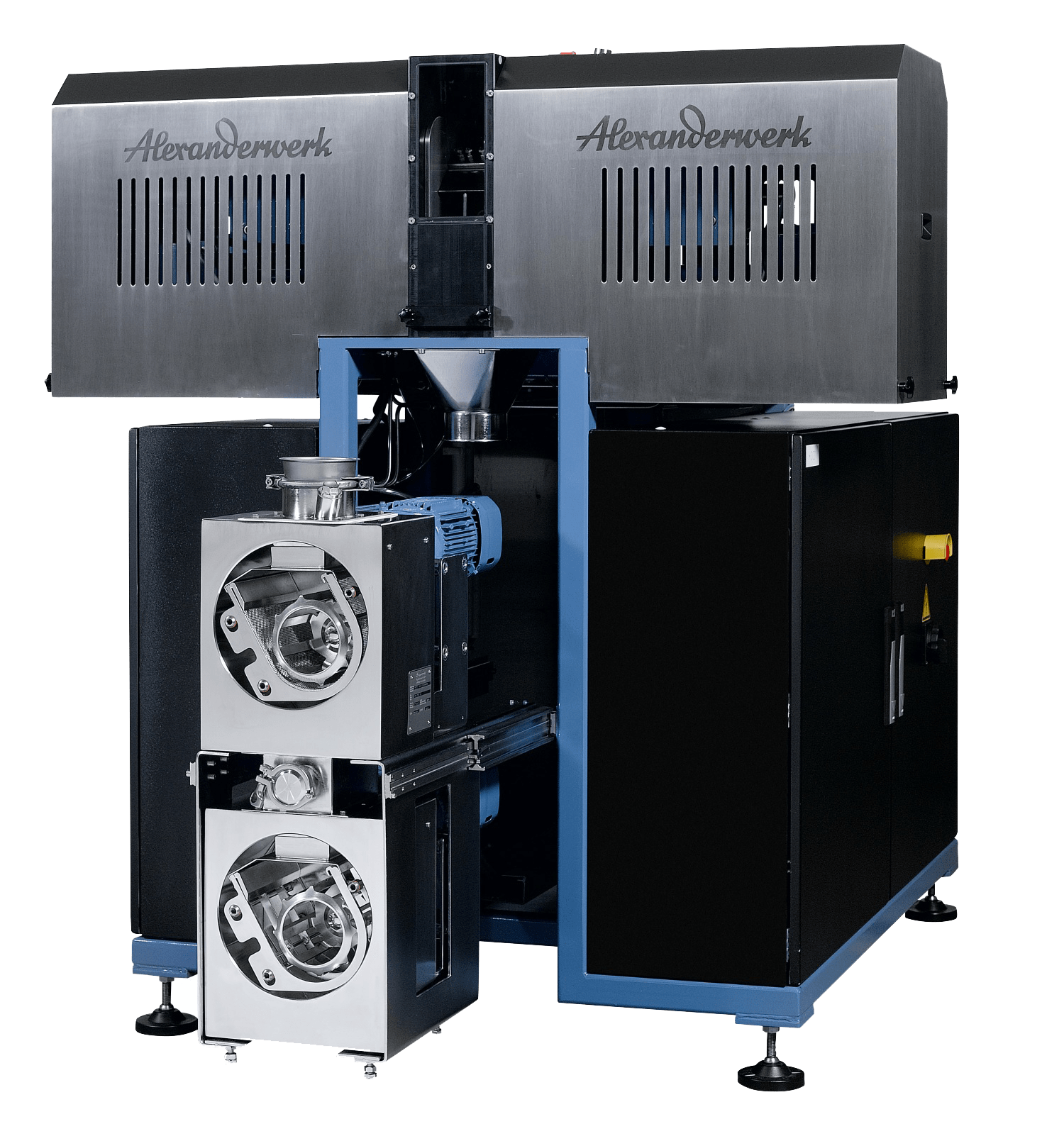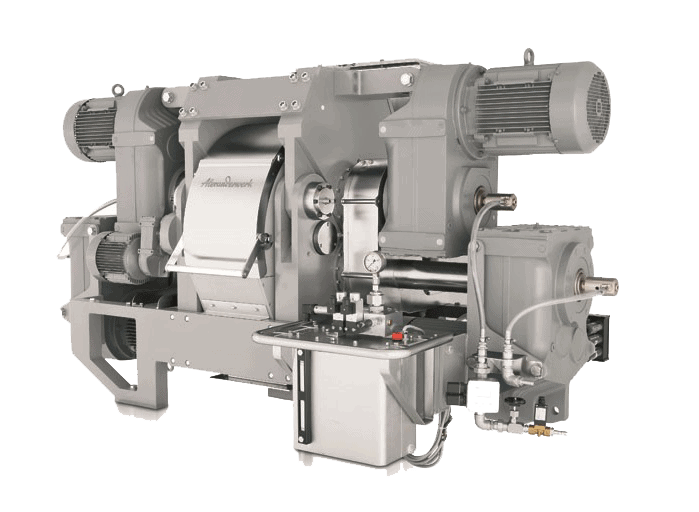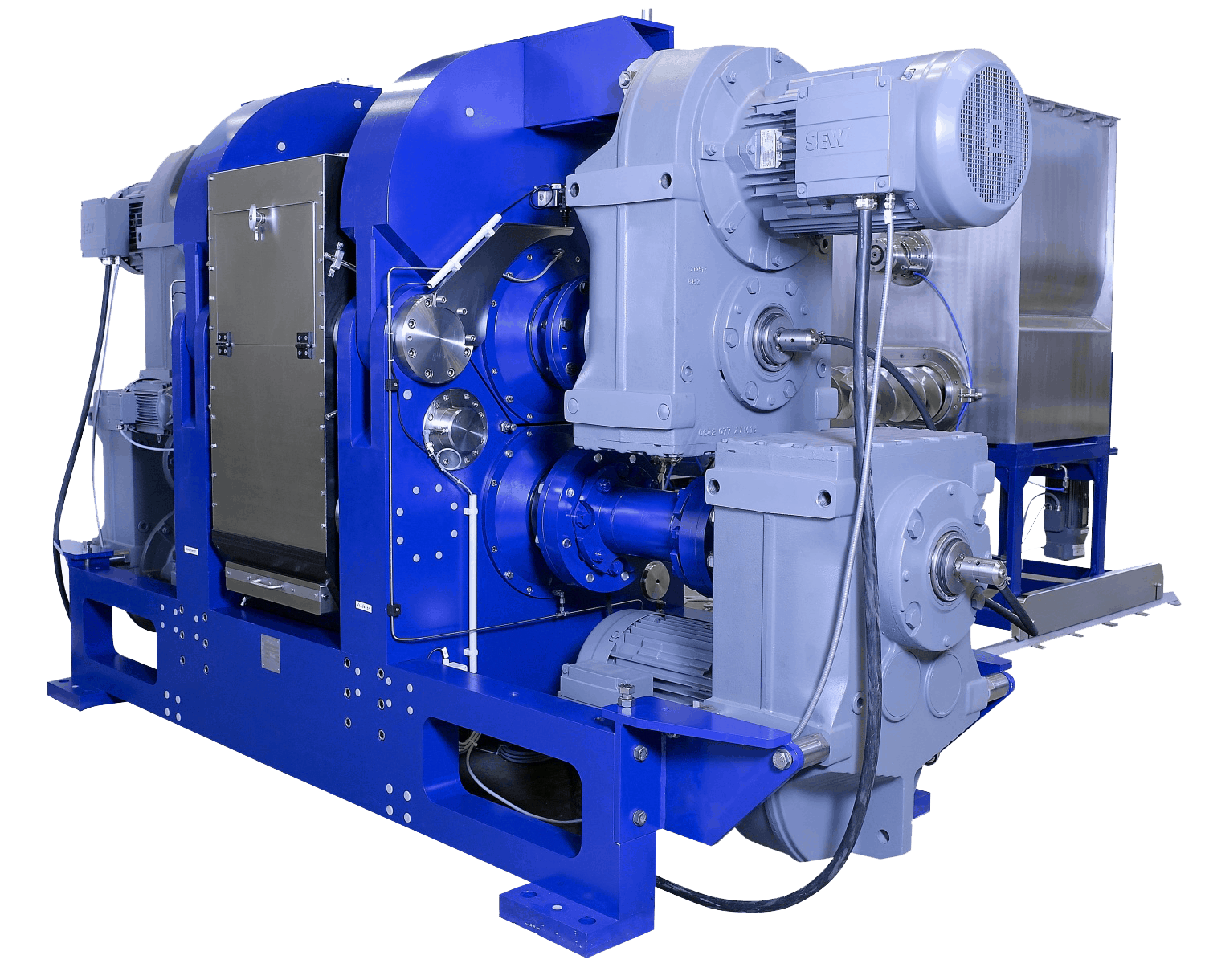Industrial Roller Compaction Technology for Chemical Applications & More
Alexanderwerk is a leader in industrial and chemical roller compaction. We have more than 130 years of experience and are committed to innovation and collaboration. We employ the latest technology to keep up with the ever-changing requirements of the industries we serve.
We offer full support to our customers via extended services including lab testing, commissioning, training, calibration, preventative maintenance, and repair service. We design our laboratory tests to exceed customers’ expectations. Product testing in our labs will help you whether deciding to supplement your current capabilities or to experiment with how Alexanderwerk’s technology can make a difference in your manufacturing process.
Alexanderwerk understands that downtime for your key process equipment is not an option. So, we have a fully equipped warehouse to allow for quick spare part deliveries.
Industrial & Chemical Roller Compaction
Roller compaction is a highly efficient process for compacting bulk materials. The primary goal of the compaction process is to increase the bulk density of powder and solids. This improves flow characteristics of the material. Increasing particle size and and a certain PSD (Particle Size Distribution) are other another important goals. Along the way fines and dust can be reduced which is especially important for explosive powders.
Alexanderwerk provides both industrial roller compaction equipment and chemical roller compaction. For chemical and other industrial applications. We can help with large single-product applications, special blended products, or toll manufacturers or any application where densification and granulation are required. Our roller compaction solutions can handle the production of a wide range of items for industrial and chemical applications including, but not limited to the following:
- Fine Chemicals / chemical blends
- Natural / biological bulk materials
- THCA or CBD crystals / isolate
- 3D printing powders
- Polycarbonate
- Sodium Carbonate
- Toner
- Metal powders
- Battery mass
- Salts
- Fertilizers
- Silica (also Fumed Silica)
- Airbag powders
Three Steps of the Compaction Process
- Feeding: The raw material (usually powder) is fed into a horizontal feed screw ensuring the material is dosed properly and consistently and uniformly delivered to the rollers.
- Compaction: The powder is compacted between two rollers into a homogenous solid flake using the force of mechanical pressure. Any displaced air must be allowed to leave this process properly.
- Granulation: The densified flakes are then granulated using a bar rotor to gently press the material through a screen of a certain size. suitable single or multi-stage granulation system. This will create the required granule size particle size distribution. We also offer other size reduction options.
Our PP Series
The PP (Power Press) series from Alexanderwerk is perfectly designed to meet all requirements and standards of the compaction process. The machines come standard with the patented Combi-Vent-Feeder®. Utilizing our unique vertical roller orientation and the vacuum de-aeration capability in the feed screw housing more raw material can be processed more consistently in a given period, which leads to a more efficient and profitable operation.
Through the double-sided bearing design of the rollers and robust frame construction, a high maximum press force can be achieved. Previously determined process parameters can easily be scaled up to larger production machines. In addition, the flexibility to deliver various granule sizes is achievable with our PP series. To ensure a compact design, all process control component systems (including hydraulics, vacuum pump, cooling water, and air distribution system) are integrated into the control system of the machine.
- PP 150 C: Our PP 150 C is designed to meet the highest standards and requirements for the chemical roller compaction. It provides a roller diameter of 150 mm and a width of 75/150/300 mm; a throughput of up to 400 kg/hr; and maximum pressure force of 30 kN/cm.
- PP 175: With a roller diameter of 175 mm, a width of 90/180/360mm, and with a throughput of approximately 1,000 kg/h, the PP 175 is designed to meet all the requirements and standards of economical compaction. This roller compactor provides a maximum pressure force of 30 kN/cm.
- PP 250: This is an extremely popular roller compactor made by Alexanderwerk for the economic compaction of raw materials. It provides a throughput of up to 5,000 kg/h and a roller diameter of 250 mm with a roller width of 125/250/500mm. This roller compactor provides a maximum pressure force of 48kN/cm.
- PP 350: This roller compactor has a roller diameter of 350 mm at roller widths of 165/350/700mm, and is capable of achieving a throughput of approximately 15,000 kg/h. The PP 350’s robust construction provides a maximum pressure force of 60 kN/cm. This roller compactor is designed to meet all requirements and standards of economical compaction.
- PP 500: Our PP 500 is designed for maximum process volume to meet all the economical compaction requirements and standards. With a roller diameter of 500 mm at roller widths of 250/500/100mm, it can achieve a throughput of approximately 25,000 kg/h. It can deliver a maximum pressure force of 96 kN/cm.
Contact Alexanderwerk for Industrial Roller Compaction
With a dedication to innovation and customer satisfaction, Alexanderwerk offers the highest quality chemical and industrial compaction equipment to meet your ever-changing needs. We offer test labs laboratory testing services to our customers to experiment with different trials and process developments to obtain the optimal processing of each product. Customers will receive a detailed test report to help them make the best decisions about their compaction process needs.
Contact Alexanderwerk to learn how our chemical and industrial compaction technology can help improve your manufacturing process.



